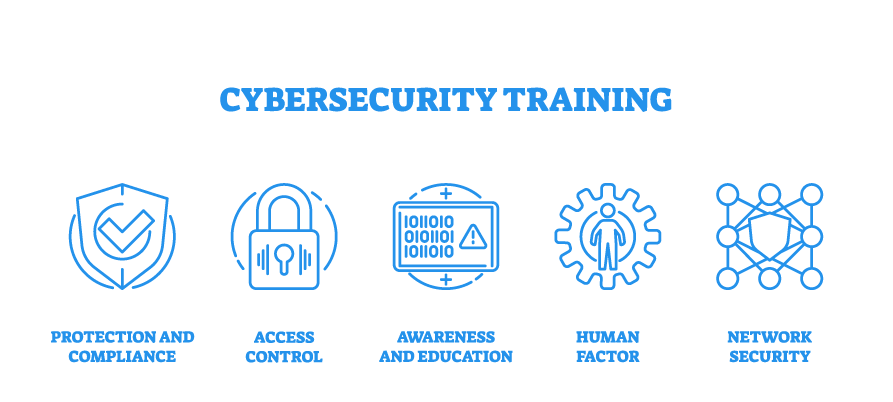
Written by: Jeff Reingold, Founder and CTO, Panurgy
The Expanding Cyber Threat Landscape
The cybersecurity landscape is growing increasingly complex, with cyber threats becoming more sophisticated and pervasive. Small to medium-sized businesses (SMBs) in New Jersey face unique challenges, as limited IT resources often hinder their ability to implement robust security measures. Understanding these threats is essential to developing an effective cybersecurity strategy that protects business operations and sensitive data.
Phishing and Social Engineering: The Human Vulnerability
Phishing attacks remain one of the most pervasive cybersecurity threats, leveraging social engineering tactics to manipulate employees into divulging sensitive information or executing malicious actions. These attacks have evolved beyond simple fraudulent emails to sophisticated spear-phishing campaigns that exploit trust and familiarity. For instance, a professional services firm in Northern NJ recently experienced a spear-phishing incident where an attacker, posing as a long-standing client, requested wire transfer details. The attacks are very sophisticated, with the email appearing to an untrained and unsuspecting eye to be from the valid, trusted contact’s email. But the reply of course, with sensitive information, will go instead to the attacker. To combat these threats, businesses should implement advanced email filtering, conduct ongoing employee cybersecurity awareness training, and enforce multi-factor authentication (MFA) for all login accounts, to minimize the risk of credential compromise.
Ransomware: A Growing Financial and Operational Risk
Ransomware attacks have surged in both complexity and frequency, with cybercriminals employing double extortion tactics—encrypting systems and data to cripple business operations, while also threatening to leak sensitive information. SMBs in NJ are prime targets due to their often-inadequate backup and disaster recovery strategies. A regional manufacturing company recently experienced a ransomware attack that temporarily paralyzed operations, highlighting the critical need for comprehensive backup solutions, endpoint detection and response (EDR) systems, and proactive incident response planning. Organizations should enforce frequent, full image, immutable backups, network segmentation, and Zero Trust frameworks to mitigate the impact of such attacks.
Data Breaches: Regulatory Compliance and Reputational Risks
Data breaches can result in severe financial, legal, and reputational consequences, particularly given stringent Federal and state data protection and privacy laws, including New Jersey’s recently-enacted New Jersey Data Protection Act (NJDPA), which went into effect on January 15, 2025. While impacted and vulnerable businesses include retailers – especially those with online presences, insurers, and many others, the healthcare and financial sectors, which handle highly sensitive personal and financial data, are particularly vulnerable. A healthcare provider in the state recently suffered a breach exposing patient records, necessitating regulatory notifications and costly remediation efforts, in addition to causing reputational damage. Implementing data encryption, strict access controls, and real-time security monitoring can significantly reduce the likelihood of a breach. Additionally, compliance with regulations such as HIPAA, PCI and the NJ Consumer Fraud Act should be a priority to avoid legal repercussions.
IoT Vulnerabilities: Expanding the Attack Surface
The proliferation of Internet of Things (IoT) devices across various industries—ranging from smart office systems to connected manufacturing equipment—has introduced new cybersecurity risks. IoT devices often lack robust security configurations, making them attractive entry points for cyber adversaries. A retail business in Jersey City recently suffered a security breach due to vulnerabilities in its smart inventory management system, which allowed unauthorized access to the broader corporate network. To address these risks, SMBs should employ network segmentation, conduct regular vulnerability assessments, and ensure that IoT devices receive timely firmware updates and security patches.
Strengthening Cyber Resilience for 2025 and Beyond
As cyber threats continue to evolve, SMBs in New Jersey must adopt a proactive stance toward cybersecurity. Key strategies include:
- Security Awareness Training: Regular education programs to enhance employee vigilance against phishing and social engineering attacks.
- Advanced Threat Detection: Leveraging AI-driven security tools to detect and neutralize threats before they escalate.
- Comprehensive Backup and Recovery Plans: Ensuring critical data is backed up securely with rapid recovery capabilities.
- IoT Security Best Practices: Enforcing strict security protocols to protect connected devices from exploitation.
Viewing cybersecurity as a strategic investment rather than an operational cost is essential for safeguarding business continuity, regulatory compliance, and brand reputation. By implementing robust defense mechanisms and staying ahead of emerging threats, NJ SMBs can fortify their digital infrastructures against an increasingly hostile cyber landscape.
____________________________________________________________________
Let’s Discuss Your Cybersecurity Strategy
 Call us today: 877-726-8749 or Book a Consult
Call us today: 877-726-8749 or Book a Consult
Your customers trust you. Let’s make sure your cybersecurity strategy keeps it that way.

Sr. VP Of Services &
Chief Technology Officer
Jeff Reingold stands at the helm of innovation
as a founding partner, Senior Vice President of Services,
and Chief Technology Officer at Panurgy.
 Support
Support
